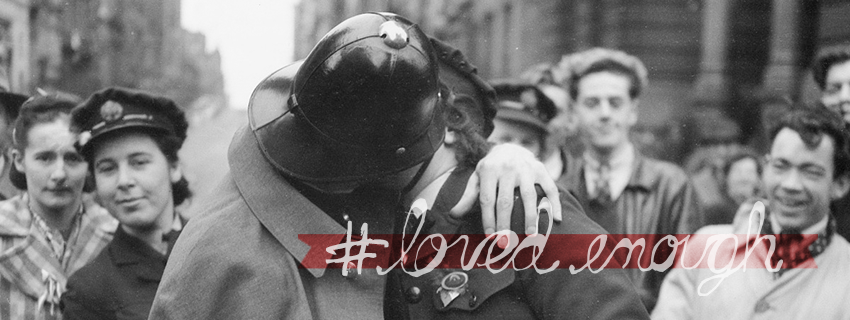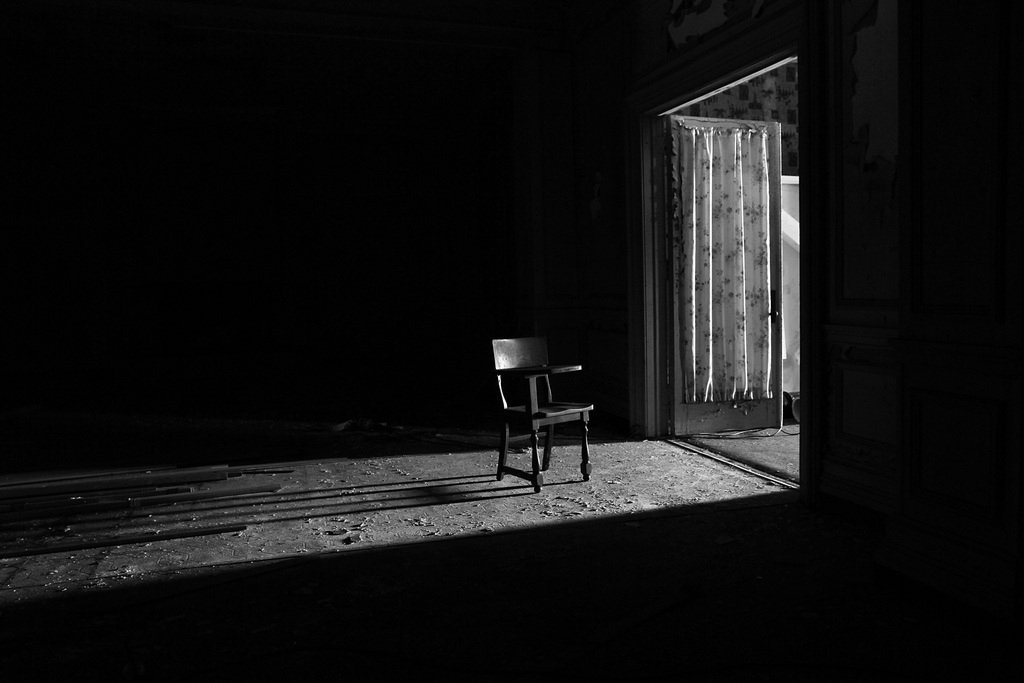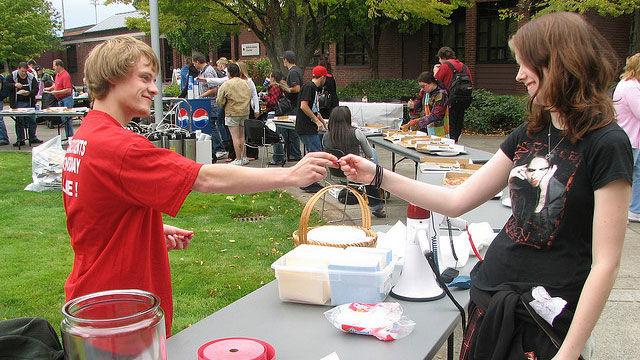|
Be encouraged by a word from Mark Gauthier, one of Cru's national directors:
“Are you tired? Worn out? Burned out on religion? Come to me. Get away with me and you’ll recover your life. I’ll show you how to take a real rest. Walk with me and work with me—watch how I do it. Learn the unforced rhythms of grace. I won’t lay anything heavy or ill-fitting on you. Keep company with me and you’ll learn to live freely and lightly.” --Matthew 11: 28-30, The Message I don’t know about you, but for me, this has been a long year. As I read this recently, I realized that the answer was “yes, I am tired.” The weariness in the more familiar translation really resonates right now. I long to experience freedom and lightness, but I come to the end of this ministry year, and I’m not sure those words describe what I’m actually feeling and experiencing. But Jesus wants to give us that freedom, be our burden bearer. He wants us to learn from him what it means to experience that freedom. Life offers us so many ways to get bound up and worn out. It is good to go back and remember where we are meant to find our life and strength – in Jesus. It is for freedom that Christ sets you free. He is the cornerstone on which we build our lives, the foundation on which we build our faith. On Him we can put our full trust, and from Him we learn to live freely and lightly. Like so much of the Christian life, living freely and lightly isn’t something that happens in an instant. It’s a process, part of our journey of sanctification. I love the image of walking with Jesus and falling into step as friends do when they walk and talk together. When we keep company with Him, following Him, we naturally pick up those unforced rhythms of grace. And we will teach those lessons as we learn them. You and I - we were made for something great, not to live in fear and bound up. We were made to live freely and to be a blessing in the world. I am really looking forward to this summer as an opportunity to live into that freedom, to continue to give back those areas of angst, tiredness,weariness that this year exposed. If you’re tired, ask God what it means to live lightly, freely. Spend time in the Word, in prayer, walking and talking with the One who is able to carry all your burdens.
0 Comments
“There is a snake in your tent man.” That seemed to be my response all day long. Student after student. Controlling girlfriends. Behind in school. Caught again in the web. Another binge weekend. 5 hours of gaming…per day. Snakes. Imagine we were out camping in the mountains. About dusk, I glance over just in time to see a large rattlesnake slither into your tent. “Hey man, a snake just crawled in your tent.” If you are a normal guy you would think I was just kidding. “No man, I’m serious.” Suppose you didn't believe me, got up and started walking toward the tent? My intensity would ramp up, "There is a snake in the tent!" I would be willing to speak sternly, even harshly. If necessary, I would wrestle you to the ground before you crawled into that tent. Why? ... To love is to warn. Part of our role as leaders is to warn of impending danger. What if I chose to say nothing about the snake? What if I were fearful you would be somehow offended? Who am I to tell you what to do? If I chose to stay silent, how would you feel about me after the snake’s venom hit your blood stream? Betrayed…at best. Jesus said some really hard things. Why? Because warning is an essential part of loving. Read these few verses out loud. Listen to the warnings. “Afterward Jesus found him (man who had been healed) in the temple and said to him, ‘Behold, you have become well; do not sin anymore, so that nothing worse happens to you." (John 5:14). "He who believes in the Son has eternal life; but he who does not obey the Son will not see life, but the wrath of God abides on him." (John 3:36). “… for unless you believe that I am He, you will die in your sins." (John 8:24). [my italics added]. Try reading them again. Jesus loved so much He got in guys faces. May I be courageous enough to deal with my own snakes and loving enough to risk warning the men around me. The video below is some straight talk from Mark Valentine: Decisions from Cru MidSouth on Vimeo. Fighting with you for men’s souls, Hank Marshman Hank is on staff with Cru in Knoxville, Tennessee and was the speaker at Upstate Cru's 2014 Fall Getaway. To say we are obsessed with love is an understatement. We are enchanted by it and often destroyed by our own voracious search for it.
We go through tremendous effort to find or even just taste love. It is so powerful that for many, the meaning of life is finding true love. So what is love? Is it an emotion? A state of being? How do we define it? A few years ago, I asked God these questions. He led me to 1 John 4, and something jumped out at me in verses 8 and 10: “Anyone who loves is a child of God and knows God. But anyone who does not love does not know God, for God is love … This is real love – not that we loved God, but that he loved us and sent his Son as a sacrifice to take away our sins.” That doesn’t mean every person who has experienced love has a relationship with God. There are people who are not followers of Christ who give and receive love. In fact, I would argue almost everyone on earth has experienced some kind of love. It is our nature to look for love. So, is 1 John 4 wrong? If we try to understand these verses by our human standard of true love, then it does seem wrong. But 1 John 4 isn’t talking about our understanding of love. The love John is talking about is completely different. Love in this context is pure and unadulterated. It is actually true love: God Himself. Love is neither an emotion nor a state of being. The Bible says true love is a Person. When seeking to define love, it is interesting to notice John doesn’t say, “God loves” or “God is loving”. He says, “God is love.” What does that mean? It means that to love us perfectly, completely and eternally – to love every person at every moment – is mere reflex for God. The incredible thing is, God has never wavered in this feeling for even one moment. We often view true love as something that must be inspired within us, but God says in His Word we’ve got it backwards. There is only one place we can look to find love that is true, and it is not within ourselves or other people. Is there any hope then for experiencing true love in this world? The answer to this question is three-fold:
This love can seem confusing, especially around a holiday when we witness so many people expressing love, many of whom do not know or care about God. As wonderful as some of these acts of love are, we have to understand they are a mere shadow of the true thing. Our idea of love is microscopic in comparison to the true height, width and depth of the affection God has for us. Only Believers in Christ can truly begin to comprehend or taste love in its actual potency this side of heaven. So as Valentine’s Day approaches and it’s tempting to feel rejected, or to worship a love that can’t satisfy, I encourage you to look to the source. God desires our pursuit of love to lead us to the only thing that can fulfill – Himself. Look to Him – He has loved you first. Want to know more about knowing God? Click here! Taken from the article Can we really find true love? by Lillian Cain on www.cru.org. Every year, the scene is the same: It’s November, I’m driving somewhere, flipping through radio stations, and suddenly Christmas music is wafting through my speakers.
And every year, my response is similar. I’m not ready to think about Christmas. It’s too early. So, I switch stations and put it out of my mind. Part of this reaction connects back to my years in college when Christmastime was synonymous with exams, final papers and due dates. Christmas music on the radio meant I was running out of time. But beginning Dec. 1 to Christmas day, Advent is a season custom-made for heart preparation. Its intention is to prompt us to set aside a bit of space each day to ready our hearts for the entrance of Christ. This season of preparation always catches me off guard. But rather than let the busyness of the Christmas season overshadow the presence of a holiday designed to celebrate God’s love and sacrifice – the very entrance of the gospel into the world – I should be preparing my heart to respond to Him out of love and gratitude. Author Ann Voskamp writes, “We’re ready for Christmas, not when we have all the gifts, but when we are ready for Christ – when we’re ready to give all of ourselves to Christ.” This Christmas, I want to do a better job of preparing my heart to celebrate the arrival of Jesus into the world. Here are some ideas in the running:
That way, when Christmas morning arrives, your attention will encompass more than stockings and Christmas dinner and the gifts beneath the tree. Instead, your heart will be captured by the ultimate gift – Jesus. Originally from Detroit, Martha now serves in Orlando, giving leadership to Cru’s Summer Missions. This is the first of in series of advent reflections for this season of hope and anticipation.
What do you long for the most? What is your heart longing for? If you’re like me, you know that the “right” answer is Christ, yet maybe it’s not your first thought. Mine either. From a young age, I dreamed about the future, and the joy I would experience there. I longed for marriage and family. I was not longing for Christ, but instead for the pleasure that my life would surely give me. Now, my reality has shifted – I have experienced real pain from unmet expectations, team conflicts, and relationship disappointments. Life doesn’t look the way I had hoped. Some days I feel contentment and satisfaction in my life and ministry, and then there are days when unmet desire drives my heart to ache for something more. In my brokenness, I catch myself waiting for life to change, to stop delivering sorrow, but it does not and never will. I am longing for this sin-stained world to deliver a better life in vain. But I must be the one to change – to instead long for Jesus as the one who has come to deliver me and save me from this worldly grief. Psalm 62 invites my desperate soul to find rest and hope in God alone. Verse 8 is where I pause. “Trust in him at all times, O people, pour out your heart before him; God is a refuge for us.” This is how I want to move towards God - with an open, soft heart, believing He sees, He knows and is safe. I respond to His invitation to share my sorrows, and shed my tears. I find refuge in His comforting presence. I remember His own suffering on the cross and my reconciled relationship with Him because of His death on my behalf. I grasp the eternal hope held out to me because of His resurrection. Jesus is the One I am waiting for. Jesus Himself. Jesus is not only my refuge, but He is my strength in weakness. My comfort in sorrow. My shield from the enemy. My hope in the face of despair. I pray this advent season, you and I would recognize the coming of our Savior into the world is the “thrill of hope” our weary souls ache for! Sweet hymns of joy in grateful chorus raise we, Let all within us praise His holy name!* Come. Let us draw near and worship him, Christ the Lord. *refrain from O Holy Night This post comes from by Philip Long, writing for Cru. You can find the original post here. I shifted my weight and paper crackled under me. My chest constricted, my eyes sagged and my mind tangled like an old cobweb.
The doctor looked up, “There’s hope for guys your age, this isn’t unusual.” I doubted that and continued rocking back and forth. I come back to that room in my mind a lot. The room with the asylum just a doctor’s note away. My father sat across from me, a steadying presence. My wife held my hand, scared. I rocked with chronic anxiety and depression. My fears had distended into sleepless nights, sweaty sheets and a sick and hopeless heart. The walls of my life closed in when I was just 23, newly married and a grad student – and I wanted out. In the basement of my parents’ house I cursed God. With tears carelessly wiped and flung, my fists pounded the bed. I yelled my pain into pillows. I screamed at God, scared he’d leave me. He didn’t leave. He never intended to. Fourteen years later, I still struggle with anxiety, but the doctor was right. There is hope. It’s the practice of giving thanks. There’s a book I always go back to, One Thousand Gifts by Ann Voskamp. A friend dared her to write 1,000 things she was thankful for in a year. A mother of six and farmer’s wife, Voskamp finds epiphanies around every corner. The smallest thing, like the way sunlight hits grated cheese, fills her with happiness. As a guy, I picked up the book skeptically. The cover shows a pair of hands holding a nest with robin eggs and a background just a touch lighter than “Lady Finger Beige”. Yes, I had to research that color, as well as how to spell “beige”. But this line slashed through my skepticism: “I enter the world like every person enters the world: with clenched fists.” Ann Voskamp tells the story of a truck hitting and killing her little sister. As a result of the accident, her life closed to any notion of grace. She started what she calls “Living the No.” She says at the heart of our fallen condition is ingratitude, saying “No” to God. Voskamp’s “thanks dare” was no game for her, it was life or death. In case I had any doubt that thanksgiving was at the core of the Christian message, she writes that saying no to God began in the Garden of Eden and ended in the Garden of Gethsemane. Jesus saying yes to God’s will led to giving thanks at the last supper, giving thanks for his impending death and giving thanks for the joy he knew was coming. But I’m thinking, That’s Jesus? How do I get there? Voskamp says opening our fists and giving thanks only comes through practice in the small things. She backs this up with a quote from Thomas Erasmus, “A nail is driven out by another nail; habit is overcome by habit.” When I’m tempted to think Voskamp’s practice of giving thanks for small things is trite, sentimental and perhaps offensive, she quips, “Driving nails into a life always is offensive.” But this nail driving is for joy. The idea of habit lines up with my life metaphor: my love of soccer. As a kid, I loved playing soccer in the backyard. I ran with the ball, endlessly dodging the invisible defenders and breaking the occasional window – Sorry, Dad. Through consistent training, the ball became a friend to my feet, moving in swift response to my whims. That ball filled me with joy. Yet when it comes to spiritual habits I’m not so consistent. Your form of thanksgiving may not be a list like Voskamp’s. But the principle of looking for God’s blessing not only in the big things, but in the minutia of the everyday, can grow your appetite for life with Him. Suddenly a cool morning breeze, or ice water, or a smile from a child, or a door held by a stranger, becomes a grateful conversation with God. When God woos me to open my fist to grace, I can open it to pain as a part of that grace. Even pain will one day be a gift because only God can transform and birth joy out of it. He’s the God of the cross. Yet thanksgiving is no quick, easy fix, or recipe for skipping past our emotions. In fact, it’s the opposite. When my fists ball, I, like King David in the Psalms and Jesus when He heard of John’s death, have the same God who held them as they beat against His chest. This liberates me to no longer divide my life up into curse moments and grace moments. Take a moment in your day to sit down, open your hands upwards and look around. What do you see that is a direct gift from God? Editor’s Note: This article by Cru (formerly Campus Crusade for Christ) Founder Bill Bright originally appeared in the November 1981 issue of Cru's magazine, Worldwide Challenge. Given his expression of concern for helping the poor and oppressed, I suppose this also makes Dr. Bright the founder of Cru's Gospel In Action initiative.
Throughout history, Christians have demonstrated God’s concern for the poor and oppressed. Campus Crusade is enhancing its discipleship ministries with a growing social conscience… INSIDE a converted factory on Chicago’s South Side, several black teenagers are going all out on a makeshift basketball court. A few adults, puffing, seem always a few steps behind. In a nearby room, a group of black Christians from an inner-city church are listening to a Campus Crusade for Christ staff member explain how to introduce others to Christ. In a smaller room, a volunteer is counseling a teenage girl concerning dating relationships. The converted factory is the still-developing Agape Community Center. Started by Campus Crusade staff member Dave Scott in 1980 to expand the Chicago inner-city ministry, the center is one of many expressions of Campus Crusade’s social conscience. Most Christians in this generation adhere to a partial gospel. They know Jesus as Savior, accept the Bible as the holy, inspired Word of God, pray, witness to others, and seek to live holy lives and to obey God’s commands. But they have given little thought and attention to His command to care for the poor, the widowed and orphaned, and the imprisoned. They have ignored the victims of discrimination, leaving civil rights issues to lawyers and politicians. Although Jesus is our model of compassion for society’s outcasts, God’s concern for the poor and oppressed did not begin with the birth and ministry of our Lord nearly 2,000 years ago, but long before. The Mosaic Law contains many commands in favor of the poor, from lending money without interest1 to leaving behind fallen grain in the field and fruit in the vineyard for the needy to gather.2 Widows and orphans are objects of His protection.3 Being just and upright, God demands justice among men, even in an imperfect world. Part of Israel’ s woe announced by the prophets was brought upon the people by their social injustice. In Jeremiah, for example, God accused His people of deeds of wickedness: “They do not plead the cause, the cause of the orphan, that they may prosper; and they do not defend the rights of the poor.”4 In fulfillment of prophecy, Jesus preached the gospel to the poor.5 Upon His return to earth as King, He will separate the righteous from the wicked. As Matthew 25 narrates, those who have fed the hungry, given drink to the thirsty, sheltered the stranger, clothed the naked and visited the sick and imprisoned will inherit eternal life. Those who have ignored the needy will be condemned to eternal punishment.6 The early church reflected this concern. The Christians in Jerusalem “had all things in common; and they began selling their property and possessions, and were sharing them with all, as anyone might have need.”7 Because of this, Luke confidently and joyfully wrote, ”For there was not a needy person among them.”8 Through the centuries since then, Christians have pioneered in demonstrating compassion and initiating needed social reform. Perhaps most noteworthy are the reforms of the British Isles in the 18th and 19th centuries. Lawlessness and immorality characterized England in the 18th century. Heavy drinking was common in all classes of society. Gambling was rampant, the government corrupt. The masses lived in deep poverty. Similar conditions in France contributed to the bloody French Revolution, but in England the influence of the Wesleyan revival initiated a more peaceful reform. After his personal experience with Christ in 1738, John Wesley traveled across Great Britain, preaching for more than 50 years. He could not resist the needs of the neglected, and has been called “the first great friend of the poor.” He denounced slavery as a scandal. He encouraged prison reform and opposed intemperance. He prepared and distributed inexpensive literature to enable the poor to gain basic education. For many years he devoted his leisure hours to the study of medicine and conducted several medical dispensaries for the poor. The great reformers who followed him owed their inspiration to his life and message. John Howard, father of modern prison reform, gave Wesley the credit for inspiring him to fight against indescribably foul prison conditions. Wesley also influenced Robert Raikes, founder of the Sunday school movement. In 1780 Raikes became concerned for the “miserable mobs of children” running the streets of Gloucester on Sunday, when the factories and shops were closed. The Sunday school gave children religious training and elementary instruction in reading, writing and simple arithmetic. William Wilberforce dedicated his life to the abolition of slavery in the British Empire. Just before his death in 1833, slavery was ended in British possessions. This achievement would have been impossible without the work of Wilberforce and his evangelical friends in Parliament. After his conversion to Christ in 1859, young Tom Barnardo volunteered for missionary service. Instead, he founded Dr. Barnardo’s Homes, the largest private orphanage system in the world. George Williams founded the Young Men’s Christian Association to meet the need of young men in the city for exercise, social life and lodging in a Christian environment. Henri Dunant, a Swiss businessman and prominent evangelical, was horrified by the suffering of the wounded and dying on the battlefield. His influence led to a Geneva Convention in 1864 and eventual founding of the Red Cross. Similar works of benevolence crossed the Atlantic to America. Historian J. Edwin Orr writes, “The decades following 1830 in American life have been called by writers ‘The Sentimental Years,’ for they were times when organized good works flourished as never before. There was scarcely an object of benevolence that lacked a dedicated society or institution, and all of the organizations—whether church-related or not—were directly indebted to the evangelical awakening of the times.”9 These good works included city rescue missions, orphanages, hospitals, schools and societies to promote prison reform, stop prostitution and abolish slavery. If we are to follow in the steps of these believers, we cannot limit the lordship of Christ in our lives only to areas directly related to evangelism. We must recognize from these biblical and historical examples that, as God’s Spirit directs men’s lives in a revolutionary way, both a burden for the lost and a desire to arrest the influence of sin in society inevitably result. To be sure, many churches and organizations today devote considerable effort helping the poor and disadvantaged and providing emergency relief, but on the whole Christians are having very little impact on society. Though Campus Crusade’s number one priority continues to be discipleship and evangelism—helping to fulfill the Great Commission of our Lord in this generation—we also are committed to doing more to meet the pressing physical and educational needs of people we are reaching for Jesus Christ, especially in the inner cities. As a new believer almost 35 years ago, I recognized my responsibility to needy people. As a deacon and director of deputation ministries in the First Presbyterian Church of Hollywood, I spent the first five years of my Christian journey working with the poor, prisoners and inhabitants of skid row in Los Angeles. Again and again my heart was broken as I witnessed the desperate needs of the neglected. That same compassion and concern remain a vital part of my life and have found expression in the ministry of Campus Crusade on a worldwide scale, most notably through The Agape Movement. A few days following EXPLO ’72, which brought 85,000 students and lay people to Dallas for a week of Christian training, the Lord impressed me to pray for 100,000 men and women to invest two years or more of their lives to help take the gospel to the ends of the earth and, at the same time, meet social needs. Could God raise up Christian doctors, teachers, agricultural workers, tradesmen and others with vocational and professional skills to help meet the needs of the hurting multitudes of earth? From that vision The Agape Movement was born in 1973. Since then, more than 300 Americans have been sent to other countries. Before leaving the United States, they received extensive training in discipleship and evangelism to enable them to meet spiritual as well as physical needs. One of the first teams comprised two nurses, a doctor and a dentist. They provided medical attention for an area of nearly 60,000 people in South Korea. Patients often lined up at 4 a.m. to wait for treatment. Sometimes nearly 200 passed through the clinic in a single day. While they waited in line, patients received the gospel message. In one month, as many as 600 Koreans received Christ through the varied witnesses of the medical team. Another medical team opened a clinic in the Philippines in a remote village known as a “barrio of thieves” because of the number of residents who stole for a living. In a few weeks, many of the hundreds of adults who came for treatment had indicated decisions for Christ, including the village captain and his wife. They began a literacy class to enable more residents to read the Bible. At the end of six months, when the medical team ended its project, more than 1,000 people had become Christians. When the crime rate dropped 80 percent, the barrio’s name was changed to Easter Village to indicate the spiritual transformation of a community. Increasingly, the complexion of the prayed-for 100,000 people has changed from North American to international. Countries in Africa, Asia and Europe have sent out Agape Movement personnel. A year ago at the ’80 World Evangelization Crusade/Here’s Life, South Korea, approximately two million Koreans responded to the invitation to commit themselves to go as missionaries or to pray for and support those who would go. P.S. Ministries, the prison ministry of Campus Crusade, began in 1974. Although conditions have improved considerably since the days of Wesley, prisons still are places of fear and inhumanity. Prison authorities warn of overcrowding and the potential rioting that poses. Most prisoners struggle psychologically, having no concept of authority, respect, love and acceptance. Larry and Beverly Benton began P.S. Ministries after Beverly was beaten in her home by a former prisoner. He had followed her there from a shopping mall, intending to kill her to “force society to put me to death, and thus, in my own weird way, prove to the world and myself that society hated me.” Eventually, the Bentons were able to forgive this man. Over a period of two years, they persisted in loving him, offering counseling and Bible study, and he accepted Christ as his Savior. His life was changed. Since then, Larry and Beverly and their staff of 35 have helped hundreds of prisoners find new life in Christ. P.S. Ministries staff emphasize discipleship and evangelism, but educational and psychological needs are not ignored. Regular counseling sessions with inmates and their families are an important part of P.S. Ministries’ approach. Included in seminars that teach basic principles of the Christian life are classes on the biblical principles governing anger, forgiveness and authority. The Chicago inner-city ministry is representative of Campus Crusade’s ministry to the poor living in several of America’s cities. Crawford Loritts’ burden for black America is helping to mobilize black Christians for full-time ministry. The recently launched Here’s Life, Inner City movement, which we want to establish in every major city, is designed to help meet spiritual, physical and educational needs of those to whom the Lord has commanded us to proclaim the gospel. As I have already stated, Campus Crusade will continue to emphasize discipleship and evangelism, for that is our primary calling. Indeed, Jesus’ purpose in coming to earth was to seek and to save the lost.”10 Attempting to meet physical needs has only temporary results, but a person rightly related to God will live eternally with Him. In the process of winning and building people for Christ, however, we must not forget that there is more we are commanded to do.
This week's edition of the Cru blog comes from Jeff Grant, College Missionary and Partnership Specialist on Cru's Student LINC Team.
Few people enjoy conflict. We want to get along with others, and it is much easier to stick to topics where we can agree, or at least pretend to agree. But is that stopping you from sharing your faith? Does the fear of offending someone keep you from saying anything at all? It’s a valid concern. The truth is, we might offend people. The gospel asks for a person to change, and that can be a tough pill to swallow. Others might take offense at the need for a Savior or to bow to a Lord. In fact, Jesus pretty much promises that people will be angry at His message (Luke 21:12-19). When concern for keeping things pleasant keeps you from talking about Jesus, you might need to do a heart check on the following priorities: Choosing comfort over JESUS. This is probably the most obvious one. Jesus commanded us to tell people about Him (Luke 24:46-47; Acts 1:8). Even though He already owns us, having created us, Jesus traded the infinite comfort of Heaven for the brutal death of a criminal all for our sake, to exchange the eternal punishment we deserve for eternal restoration and a meaningful part in His rescue mission to the world. Will we shrug at all of that and go back to wasting our time in comfort? I don’t believe we can lose the gift we did not earn, but I am both chilled and inspired by Jesus’ promise in Matthew 10:28-33. Choosing comfort over LOVE. It’s funny that we’re afraid to tell people about Jesus, because not only does it glorify God, but it is also the most important and awesome information someone could ever get! A famous atheist, Penn Jillette, once said, “How much do you have to hate someone to believe that everlasting life is possible and not tell them that?” When you discover a new TV show or piece of technology, do you keep it to yourself or do you “like” it “share” it and email it to everybody you know? We should always be sensitive to another person’s thoughts and feelings, but it comes back to being motivated by love and filled with the Holy Spirit. If those things are true, then you will listen well and meet them where they are rather than deliver a faceless, one-size-fits-all, prepackaged gospel message. Choosing comfort over YOURSELF. A friend of mine recently asked, “why are the things of this world so much more tempting and tangible than the things of God?” It’s a great question, and toward the end of my response, I realized that my best answer to that feeling is to follow Henry Blackaby’s advice to “see where God is at work and join Him.” You’re not going to experience God moving through you if you aren’t willing to step into the current of what He is doing. God is about rescuing the lost, and if we want to be a part of this story (what we were made for), we need to ante in. So if you’ve looked at all those things, and put comfort aside for the greater cause, is it still possible to get it wrong? (Matthew 7:22-23) In his book, With, Skye Jethani talks about the many poor postures we can have toward God (such as “over God” or “against God”). A surprisingly bad posture though is living “for God.” We can serve Him relentlessly but never know Him. Living “with” God does involve plenty of hard work and sacrifice, but God cares more about a loving relationship with Him than simply what He can get out of us. Don’t forget, He doesn’t need us at all (Matthew 3:9). Action Step Consider starting with a “sometime” question. Ask a friend or family member, “could we sit down sometime so I can hear about your thoughts and experiences about spiritual stuff? I’d love to share mine with you as well.” When you do have that conversation, be ready to ask good questions and listen well. Then, tell themyour story and be sure to include how the Bible says they can know God personally. Remember, the greatest tool we have is the love and kindness of Jesus. No matter how offensive the thought of changing or of needing a Savior may be, many people are disarmed by an act of love. We all know going back to school can be a mix of nerves and excitement, so here are some tidbits of advice from Cru.org to help you stay on track as you prepare.
Before you get to your campus
Once you’re on your campus This week's edition of the Cru blog features an article from Cru's Monthly Magazine Worldwide Challenge. Read more from WWC at http://worldwidechallenge.org. Ben was just staring at me, waiting. “Can she sleep at your place tonight?” he had asked. “She’s fallen on hard times.” She was a thin, pierced teenager whom we had just met on the streets of Montpellier, France. We were distributing sandwiches and bottled water to the homeless, and Ben turned the tables on me. I stammered a little, “Ummm . . .” What is the right response, Jesus? What’s my responsibility to protect my kids? We only have three small bedrooms for the six of us. It underscored my struggle regarding social justice and expanding God’s kingdom. Simply said, “If a brother or sister is poorly clothed and lacking in daily food, and one of you says to them, ‘Go in peace, be warmed and filled,’ without giving them the things needed for the body, what good is that? So also faith by itself, if it does not have works, is dead” (James 2:15-17). But how important is it to focus on, as pastor and author Tim Keller says, “the quartet of the vulnerable”—the poor, the orphan, the widow and the immigrant (Zechariah 7:10)? And how do I hold that in tension with Jesus’ words to make disciples of all nations? My family had gone to France with that latter goal in mind. I grew up in a church that didn’t articulate the salvation message on Sundays, but donated money to a laundry list of social causes. Then I became involved in Cru and, during four years of college, didn’t once participate in anything resembling social action. I did learn how to give my three-minute testimony and explain the gospel. We did it faithfully— on campus, at beaches, at our workplaces. The eternal trumped the temporal and winning souls beat out offering bread. This focus was exactly opposite the church of my childhood. The pendulum had swung, and I had no grid for how or why to integrate the two. The eternal trumped the temporal and winning souls beat out offering bread. This focus was exactly opposite the church of my childhood. The pendulum had swung, and I had no grid for how or why to integrate the two. In the process, I joined a new church. One summer, the dynamic youth pastor took teenagers to Mexico. The group built a needed youth center there. Though I never said it, I wondered, Why aren’t you more clearly proclaiming the gospel? Five years out of college, I participated in an event combining social action and evangelism. Coordinated by Cru’s inner-city ministry, groups of 75 huddled in various downtown Minneapolis churches. The welcoming pastors gave some instructions, prayed and then split us up into pairs to deliver boxes—each containing a turkey, canned vegetables and fruits, a Bible and coloring books—to grateful families. Once or twice that day, we sat with a family at a kitchen table to discuss the gospel using a tract. That was 17 years ago, and this initiative continues. Last year, Cru assembled and distributed 25,181 Boxes of Love in cooperation with urban churches across America. “I think that meeting physical needs authenticates the gospel in a profound way,” says Cru leader Dave Mikesell. “It says, ‘I care that you have food in your stomach and that you go to school, but I also care about your eternity.’” And then came the tide that turned our campus leaders toward this view. I was in the fog of raising four kids ages 6 and under when a tsunami hit southern Asia in December 2004. We got an email saying Cru missionary Chip Scivicque was organizing students for relief trips. Chip and his family had lived in Thailand for 12 years, sharing Christ daily and seeing little response. In 1983, the country was characterized as 95 percent Buddhist and .05 percent Christian. “To go again in 2005 and experience the depth of the openness of the gospel when we brought in tangible help,” says Chip with emotion, “was amazing.” The provinces most affected by the tsunami went from three churches to 65 within 11 months! On the heels of tsunami relief, Hurricane Katrina hit America’s Gulf Coast in August 2005. Again Cru jumped in. More than 17,000 students and Cru staff members eventually showed up, cleaning around 3,000 homes and schools, distributing more than 3,000 Bibles and articulating the gospel 4,000 times. With unexpected eternal kickbacks. Kelly Woodman traveled to New Orleans from Greeley, Colorado, with 140 students, half of them non-Christians. “One student, Marla, who gave her life to Jesus after the trip, admitted she would have never cared to know about Jesus before seeing that believers really do care for the needs of the destitute,” remembers Kelly. After the Katrina cleanup, Cru leaders continued to look for ways to combine the good news with good deeds. And so it went for me, living in an international setting, no longer sheltered from the vulnerable. Like the adults at a mental health day-care facility just 100 yards from our urban townhouse in southern France. I would pass them as I biked my kids to school and back. I felt compelled to greet one stone-faced man daily. But my good intentions often turned to discomfort. His responses felt creepy. I feared he might follow me home. It wasn’t so much fear that kept me from approaching the prostitutes that gathered at night under the Romanstyled aqueduct three blocks from our home. I felt sad for their situation. But honestly, I didn’t know how to help and just hoped that my adolescent sons wouldn’t glimpse their come-hither poses. That indifference gets shaken as I read Keller’s Generous Justice: “[W]hen the Spirit enables us to understand what Christ has done for us, the result is a life poured out in deeds of justice and compassion for the poor.” But does demonstration always have to accompany proclamation? In France, most students come from middle-class backgrounds, and the government pays their expenses. Their physical needs are few. Proclamation of the gospel involves first deliberately addressing their deeply entrenched intellectual objections to God and the Bible. However, when those same skeptical students participate in an outreach to the needy, like handing out sandwiches, it cracks open a door to witness the love of a real God in action. Little by little, I’m seeing that words and deeds marry beautifully. And their consummation surely invites a more diverse crowd to the wedding feast in heaven. But if today Ben asked me to harbor the homeless girl, I’d still hesitate. Intellectually, I am for social justice, but emotionally, I’m uncertain how much it should cost me. You can contact the writer at [email protected]. Take Away: >How have you done with holding gospel proclamation and social justice in tension with one another? Invite a non-Christian friend to participate in social action with you. For more articles on the subject, check outwww.crupressgreen.com under the "Gospel in Action" subheading. |
AuthorA community where Jesus Christ captures hearts, transforms lives, and launches men and women into a life long adventure with Him. Archives
June 2015
Categories
All
|








 RSS Feed
RSS Feed